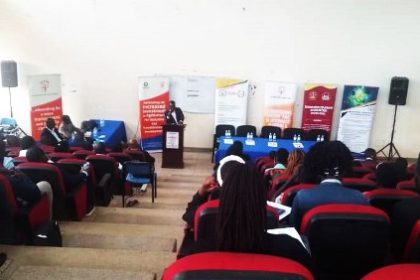Uganda contraceptive use rises 10pc

Dr. Lwasampijja
December 11, 2018 – Uganda’s Contraceptive Prevalence Rate registered a near double-digit increase in the three years to November 2018, as Population Services international’s Uganda operation worked to push use towards an ambitious 41pc by the end of the year.
Presenting a report card to a National Stakeholders Meeting in Kampala on December 6, Dr Milly Kaggwa, the Director for Programmes at PSI-Uganda said CPR had instead reached 36.5pc from 25.6pc in 2015.
“This was a huge target, we have made progress but the numbers show that we still have some way to go,” she told the meeting.
Alongside increasing access to Misoprostol tablets in post-abortion care, PSI-U had also aimed to increase the percentage of women of reproductive age using inter-uterine devices OUD’s from a paltry 0.8pc to 3.1pc by 2018. The social marketer overachieved on is last target posting an outturn of 3.8pc.
Uganda is still struggling with a high fertility currently at 5.4 children per woman and a teenage pregnancy rate of 12pc. Annual population growth is above 3pc while at 336 deaths for every 100,000 expectant mothers, the maternal mortality is way above the SDG target of 70 deaths for every 1000,000.
According to Lwasampijja Fred, the District Health Officer for Mityana, the partnership with PSI is helping fill a crucial gap in delivery of family planning services by the public health system.
“They have not just been supplying us with family planning commodities but also skilled our health workers in techniques of administering the different interventions and how to handle any complications,” he says.
Mityana is one of the districts with a high number of unwanted pregnancies especially among adolescents. Close to a quarter of all mothers attending antenatal clinics in the district are adolescents. Many of these pregnancies are unwanted with many also reporting to medical facilities with post abortion complications.
“This means we are falling short in provision of family planning services, otherwise they would not have got pregnancy and related complications,” Lwasampijja says.
According to the Ministry of Health’s Demographic Health Indicator Survey 2018, public health facilities recorded 51,479 abortion cases and 93 abortion related deaths during 2017. PSI-Uganda franchise clinics handled and treated 2542 post-abortion emergencies. But only 541 of these received family planning as part of Post Abortion Care.
With a presence in 62 districts PSI’s footprint in Uganda covered nearly half the country through 351 public sector facilities and 173 ProFam franchise partners during the year.
PSI is focusing on promoting family planning, expanding post abortion care, cervical cancer screening and social marketing of family planning commodities.

 Shell Club rewards first winners with brand new motorbikes in Mbale
Shell Club rewards first winners with brand new motorbikes in Mbale
 CSBAG roots for increased funding for renewable energy
CSBAG roots for increased funding for renewable energy
 Equity walks tried and tested path to deliver solid half-year
Equity walks tried and tested path to deliver solid half-year
 Nile Breweries primes retailers for brave new world
Nile Breweries primes retailers for brave new world
 Uganda calls for collaboration with airlines in fight against illicit trade in wildlife
Uganda calls for collaboration with airlines in fight against illicit trade in wildlife
 Airline industry top guns dust-off passports for Uganda hosted 55th AFRAA annual meet
Airline industry top guns dust-off passports for Uganda hosted 55th AFRAA annual meet
